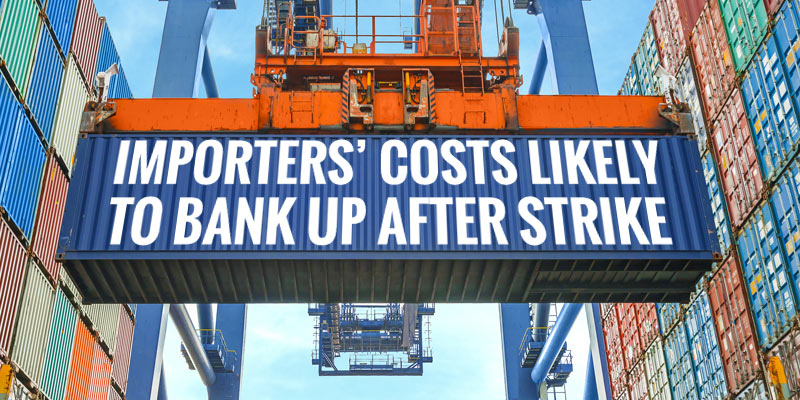A 72-hour strike by the Maritime Union of Australia at Fremantle Terminal announced yesterday brings strong possibility that importers’ budgets will blow out by as much as thousands, making them the real losers in the dispute.
Today the union has confirmed the industrial action will also affect Port Botany operations from April 13. Importers should consider if other ports might also be affected in the coming weeks and plan accordingly.
Top Customs Brokerage Platinum® Freight Management recommends importers plan by checking the status of any affected shipments from both terminals and taking action to pre-clear any upcoming shipments in order to avoid additional blowouts.
Industrial action is one of the highest and least controllable risk areas for importers’ budget blowouts.
The three major loss areas are:
- Higher wharf charges
Wharf storage commences after the vessel discharges the containers from the vessel; this is usually after the first three days once the container is sitting on the ground at the Fremantle Terminal. - Shipping line detention
Containers must be returned within 7-10 days on average after unloading from a vessel, meaning that if there are delays in moving it due to strike action, there will also be fees in returning the empty container late. The entire logistical equation is under time and budget pressure. - Further delays
Border Force still needs to complete its checks with due diligence, which can lead to further delays in stock exiting the terminal, even while the above two charges continue to add up. This risk can be mitigated if the cargo is pre-cleared during shipment to Australia and before arriving in Fremantle.
Platinum® Freight Management explains the importance of planning and preparation for importers:
“Industrial action is all too common, and while media tends to focus on the trade issue at stake, the forgotten loser is the importer, who has no bearing in the delays other than waiting for their stock, whether it be apparel or building materials, or even fresh produce,” says CEO Peter McRae.
“There is no way for the importer or indeed their broker to avoid many of the main offending charges associated with a strike – it’s just bad luck. A smart importer will have the risk covered in their contingency budget. We encourage importers to act smarter again, pre-clearing shipments promptly as they exit the country of origin. This takes out at least one of the major areas of potential blowout, meaning you’ve mitigated as much risk as possible when unforeseen circumstances such as strikes hit.
In this week’s example, Platinum® Freight advises importers to stay abreast of the dispute to ensure it doesn’t escalate beyond the announced dates at both terminals, and to work with their broker to stay across possible incremental charges applying to each affected shipment. The Brokerage also recommends pre-clearing any shipments due to terminal in the coming weeks, in case of bottlenecks once stock lands.
For further information about the cost of importing and areas where importers can save phone 1300 882 877 for a free quote on your next shipment.

